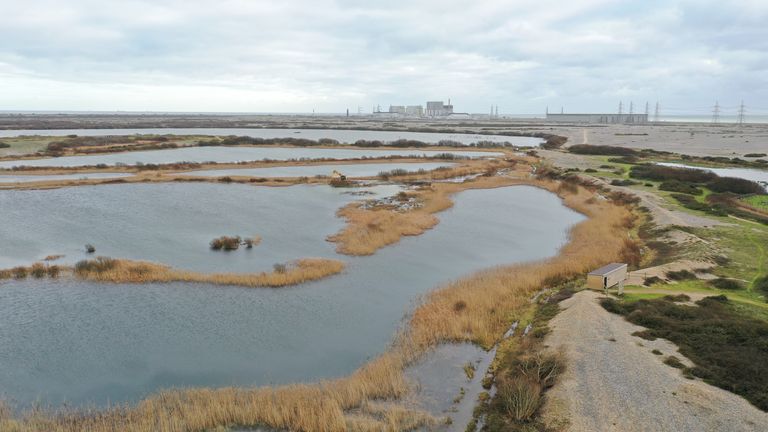Operation Turtledove: How conservationists are racing to save UK's fastest declining bird species
The turtle dove may be one of the UK’s most iconic Christmas birds but, as the fastest declining bird species, conservationists are hoping 2024 might be the year to save it.
Numbers of turtle doves have plummeted by 99% since the late 1960s.
It is believed only around 2,100 breeding pairs remain in the UK.
The biggest reason for their decline is the loss of breeding season habitats that provide the necessary food for doves to survive.
The RSPB's Operation Turtledove is trying to turn round the bird's fortunes.
As intensive farming is one of the biggest factors for reducing the number of seeds for doves to feed on, turtle dove conservation advisor Nicole Khan says they are working directly with farmers to help them manage their land so that more turtle doves will want to breed.
"Obviously it takes time to recover a population, but we've got some wonderful examples of farmers doing all the right things and they've managed to attract turtle doves back as a breeding species, so I think it's definitely a cause for hope," she said.
But the landmark State of Nature 2023 report was less hopeful.
It was put together by leading scientists and presented the most up-to-date picture of the decline of wildlife throughout the UK.
It said that one in six species was at risk of being lost. Creatures such as the hazel dormouse, the lady's slipper orchid and the European eel also face uncertain futures.
But birds had the most worrying results, with 43% at risk of extinction.
The report found that intensive farming and the effects of climate change are having the biggest impacts on our wildlife.
Staff at the RSPB Dungeness in Kent are fighting the effects of climate change.
The enormous reserve of shingle, freshwater pits, wet grassland and meadows aims to create good breeding conditions to attract birds such as Lapwings, Redshanks and Garganeys.
"We have breeding bird islands within the open water which provides habitats for the migratory Terns to nest on when they arrive here in the spring and over the summer," Isobel Donovon, the reserve's conservation advisor said.
"Due to the rising levels because of climate change and the unpredictability of the water, we are having to do more work on site, diggers are creating more height to the islands so we safeguard the breeding of Terns on site for the future."
The government says it is putting millions into projects to improve habitats for wildlife, including £25m for the Species Survival Fund and £750m for woodland and peatland restoration.
But for birds like the turtle dove, time is running out.




No comments:
Post a Comment
Stick to the subject, NO religion, or Party politics